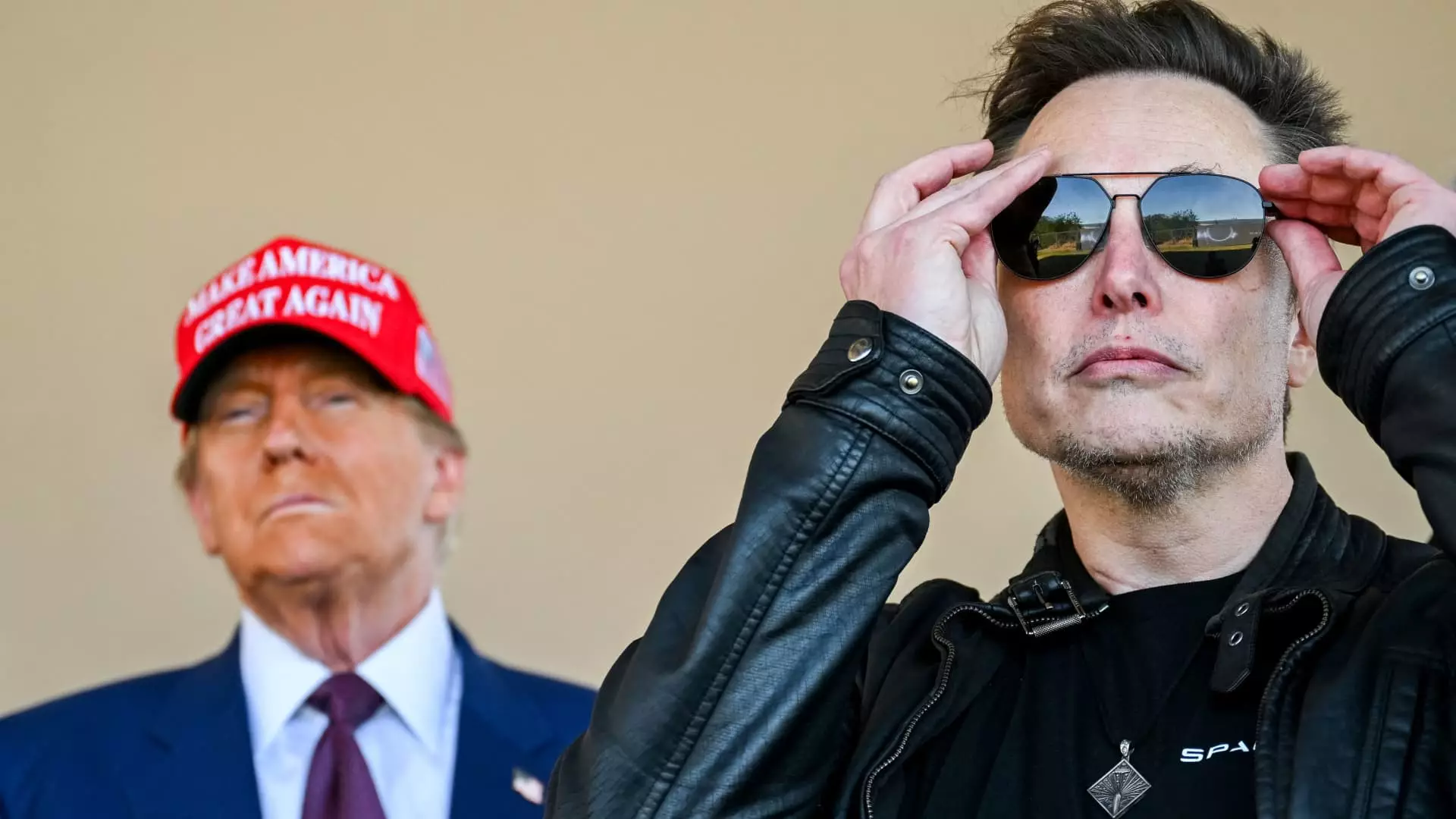Elon Musk has established a formidable presence across various industries, rendering him one of the most influential figures in contemporary business. His ventures, from electric vehicles at Tesla to private space travel with SpaceX, highlight an innovation trajectory that has captivated the public and investors alike. The scope of Musk’s empire extends to multiple sectors, including social media with X, neural technology through Neuralink, underground transit solutions from the Boring Company, and cutting-edge artificial intelligence via xAI. Each of these enterprises reflects Musk’s relentless drive for modernity, yet they also illustrate the complex interplay of business and government in the United States.
A significant dimension of Musk’s influence lies in his companies’ strategic partnerships with the federal government. SpaceX, in particular, stands as a prime example, having secured over $19 billion in federal contracts, as highlighted by research from FedScout. This financial backing not only supports SpaceX’s ambitious missions but also fortifies its longevity in a competitive market landscape. Analysts predict that the company’s annual federal revenue could significantly increase under a potential second Trump administration. This anticipated influx of contracts raises questions about the ramifications for competition and innovation within the aerospace sector and beyond.
Deregulation and Administrative Reforms
Musk’s stance on regulation is equally pivotal to understanding his operational philosophy. He has often asserted that excessive governmental oversight hampers progress. Recently, Musk, alongside Vivek Ramaswamy, was appointed to lead the Department of Government Efficiency (DOGE) under Trump’s proposed governance framework. Their focus on regulatory rescissions and cost-saving measures indicates a desire to streamline governmental processes to facilitate a more business-friendly environment. This aligns with broader deregulatory trends that could reduce the bureaucratic barriers that Musk frequently criticizes, thereby allowing his companies more freedom to innovate.
However, such calls for deregulation and administrative reform raise valid concerns about accountability and oversight, particularly in sectors that significantly impact national security and public welfare. For instance, the Pentagon’s repeated audit failures have sparked criticism regarding spending transparency and fiscal responsibility. By promoting large-scale auditing and accountability measures as part of their reform agenda, Musk and Ramaswamy underscore an essential aspect of governance: maintaining checks and balances alongside promoting efficiency. Whether their initiatives will lead to effective oversight remains to be seen, but it is a crucial consideration in the ongoing dialogue about corporate power in government affairs.
As Musk’s ventures continue to grow, the dynamic between his business interests and government oversight will undoubtedly shape the future of multiple industries. The pursuit of less regulation, while enticing for business leaders aiming for flexibility and speed in innovation, poses critical challenges concerning the safeguarding of public interests and maintaining equitable competition in the marketplace. Musk’s ongoing narrative mirrors broader societal debates about the appropriate role of government in regulating industries that are continually evolving. Ultimately, the outcomes of these initiatives will be closely watched, as they hold the potential to define the business landscape for generations to come.


Leave a Reply